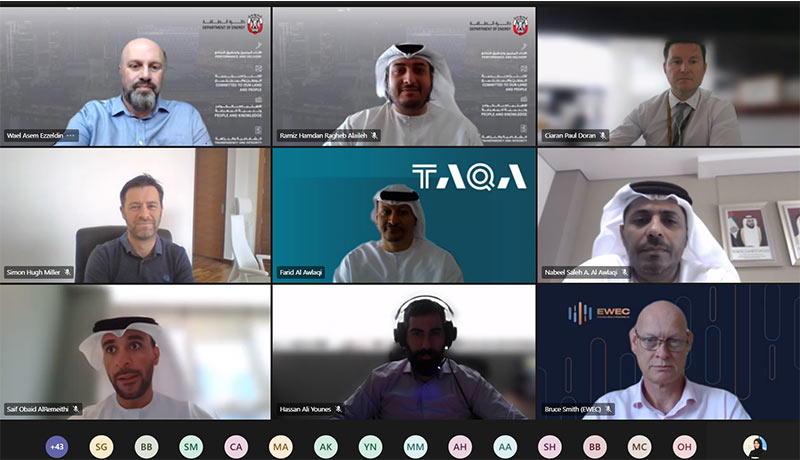
The Abu Dhabi Department of Energy (DoE) has hosted a workshop on the Energy and Water Efficiency Policy for Government Buildings to advocate for an effective, thorough implementation of the policy as well as provide energy management training to energy efficiency champions from the government sector.
The two-day workshop gathered more than 80members coming from more than 20 government entities. It is the first event that DoE organizes following the issuance of the Energy and Water Efficiency Policy for Government Buildings, which provides an implementation framework to assist government entities in rationalising their water and electricity consumption and adopting effective water and energy efficiency measures in their facilities.
Fatima Alfoora Alshamsi, DoE’s Energy Policy Executive Director, said: “The building sector is one of the largest energy consumer sectors in Abu Dhabi that, alongside the rapid population growth, urbanization and industrialization of the emirate, makes it one of the main targets of our energy efficiency efforts. Since 2019, we have been implementing a Buildings Retrofit programme under the Abu Dhabi Demand Side Management and Energy Rationalizaiton Strategy 2030. The Energy and Water Efficiency Policy for Government Entities is an enabler of this programme and a primary step towards the establishment of measures for energy efficiency in all buildings and the development of building regulations and codes across the emirate.”
Over the past two years, DoE implemented a pilot building retrofitting project in seven government buildings based on a performance contracting model which has shown an initial average energy saving of 38% across the seven buildings. In addition, another initiative under the same programme was implemented by Abu Dhabi and Al Ain Distribution Companies to install around 21,900 efficient water ablution taps in 1,577 mosques, saving more than 30% of their water consumption. The Buildings Retrofit programme is expected to achieve 2.7TWh of electricity and 9 Mm3 of water consumption savings by 2030.
During the first part of the workshop, DoE’s Director of Sustainability and Energy Efficiency, Ramiz Alaileh, presented an overview of the Abu Dhabi Demand Side Management and Energy Rationalizaiton Strategy 2030 and a summary of achievements and challenges in the implementation of energy efficiency measures in buildings. This was followed by an introduction of implementation guidelines and evaluation matrices of the Energy and Water Efficiency Policy for Government Entities.
The second part of the workshop focused on energy management training conducted by GrfnGlobal over two days and included discussions on energy supplies and costs of buildings retrofitting, energy audits, measurement and verification, metering and controls, and lighting retrofits.
Commenting on the workshop, Ramiz Alaileh said: “We are delighted with the great turnout at the first workshop on the Energy and Water Efficiency Policy for Government Buildings. This shows that government entities are interested and committed to implementing the policy recommendations for energy efficient buildings. More workshops will be organised and our goal is to foster a culture of energy conservation within government entities and lead by example in using electricity and water resources more efficiently. As each entity is expected to establish clear and measurable energy efficiency goals across existing and new buildings, the workshop is a useful platform to provide them with energy management training and support them in defining priority areas while working towards higher energy efficiency standards in government buildings.”
Under the Energy and Water Efficiency Policy for Government Buildings, each government entity is required to make a commitment by assigning an Energy Team and instituting an internal energy policy; assess performance by collecting data, establishing baselines and benchmarks and conducting analysis and technical audits; estimate potential for improvement and set goals; develop an action plan that defines technical measures and targets for each building; implement the plan and monitor progress; evaluate and verify results; and recognize achievements.
Since the issuance of the policy, more than 20 government entities have nominated teams to oversee the implementation of energy efficiency measures in their premises and more than 14 entities have reported progress and submitted evaluation matrices to the DoE.